Book Online
Are you thinking about a Smile makeover or have you always wanted to
brighten your smile? Why not contact us for a E-Consultation. You can
simply send us a photo of your smile and we’ll get back to you with our
suggestions.
brighten your smile? Why not contact us for a E-Consultation. You can
simply send us a photo of your smile and we’ll get back to you with our
suggestions.




